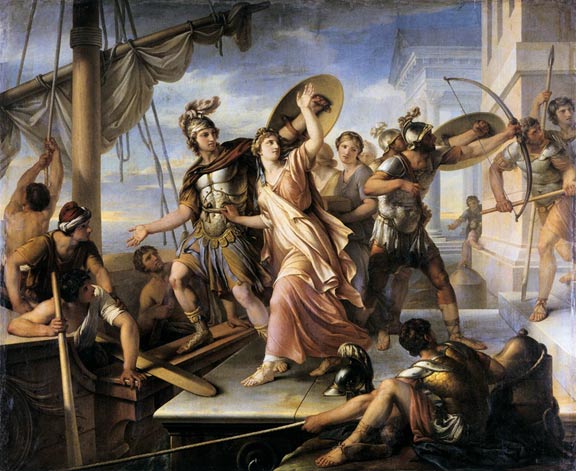The English presence in Ireland has pervaded the politics of those countries for 800 years and flowed into others. The Australian conscription referendums of the Great War and the election of JFK are two examples. That said, who knows let alone cares that President Biden has an Irish Catholic pedigree?
In any event, 1 May 1169 is the date traditionally given to the first Anglo-Norman incursion. With the sanction of King Henry II of England, mercenaries landed at the request of Dermot MacMurragh, the deposed King of Leinster, who died two years to the day later.
While the event may have little to do with England’s subsequent colonialism, bards have been fascinated by it. In particular, Woman has played a central role.
The tale goes that Dermot was deposed because he sought to abduct Dervorgilla, a neighbouring king’s wife, a willing abductee who became a willing prisoner. Cultural lesson one, how many times is War Woman’s fault?
Cultural lesson two is a tweak on lesson one. Sex sells. Distasteful as it may be to the modern reader, women have been property for most of history. After all, why the Tenth Commandment when we already had the Seventh? But in the hands of great writers, a mere dynastic power squabble would become the retelling of a much older tale.
William Butler Yeats’s play The Dreaming of the Bones was written upon Easter 1916:
Young Man.
What crime can stay so in the memory?
What crime can keep apart the lips of lovers
Wandering and alone?
Young Girl.
Her king and lover
Was overthrown in battle by her husband,
And for her sake and for his own, being blind
And bitter and bitterly in love, he brought
A foreign army from across the sea.
Young Man.
You speak of Diarmuid and Dervorgilla
Who brought the Norman in?
Two openers for civilisation have been The Iliad and the Bible. I’ve noted the Bible above. The Iliad is about the Trojan War, founded upon the abduction of Helen of Troy. To sum up the odyssey of cultural myth from Greece to Ireland, we have Ulysses:
— Swindling the peasants, says the citizen, and the poor of Ireland. We want no more strangers in our house.
…
— The strangers, says the citizen. Our own fault. We let them come in. We brought them in. The adulteress and her paramour brought the Saxon robbers here.
